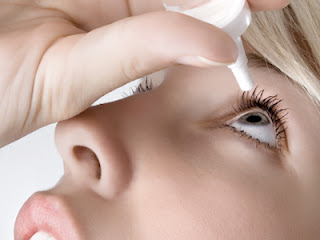There are many different types of eye problems, all ranging in seriousness and being treatable in different ways. Some of the most common eye problems include glaucoma, irritated eyes and conjunctivitis. Eye drops are one of the most common ways to treat, prevent or control the problem as they provide soothing effects, helping the problem of the sufferer.
There are different eye drops to suit different conditions. Natural eye drops are usually used to treat conjunctivitis, irritated or dry eyes as they act as a lubricant and can help to sooth the eye. Natural eye drops are usually recommended as they don’t contain any preservatives, making sure the problem isn’t made any worse. The lubricating eye drops will act as artificial tears and are especially used for dry eyes. Lubricant eye drops may also be used for those who wear contact lenses. These may be specially prescribed, however natural eye drops are usually sufficient.
image from mental floss
Eye drops may also be prescribed for serious eye conditions, including glaucoma. The eye disease is due to a damaged optic nerve, caused by pressure behind the eye. Eye drops won’t cure the disease however it can prevent it from getting worse and control the condition. If the eye drops are prescribed it is likely they will contain medication to ease the problem, meaning over the counter eye drops may not be sufficient to treat the problem. Glaucoma usually affects both eyes and can eventually lead to complete loss of sight; therefore it is important to take sufficient steps to prevent it. Antibacterial eye drops are also prescribed to those who have infections in the eye. Keratitis is caused by a virus, bacteria or parasite which can be caused by using contact lenses whilst swimming or not taking proper care of the lenses.
These are the most common types of eye problems and it is important to visit your GP if necessary or take the appropriate measures to help the infection or problem in the eye.






